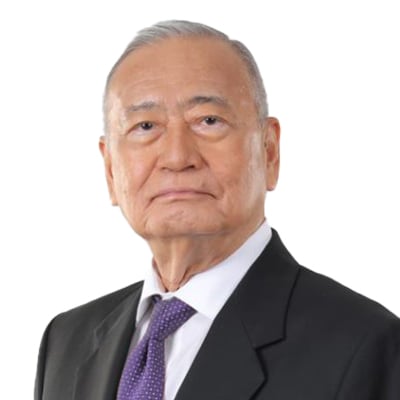First of two parts
During the past weeks, the world was roiled by US President Trump’s issuance of an Executive Order levying what he calls “reciprocal tariffs” to practically all countries in the world, at varying rates. While he subsequently decided to pause for 90 days the promulgation of the originally developed reciprocal tariffs, he levied a uniform 10% reciprocal tariffs to all these countries, except China to whom he continued to impose a staggering tariff rate of 145%.
Existing Tariffs Before Reciprocal Tariffs
We have verified from the Philippine Department of Trade and Industries that the Trump reciprocal tariffs are add-ons to, and not replacements of, the then existing tariffs. It will be helpful for better understanding if we can obtain the previously existing tariff rates imposed by the US on imports from the Philippines. It is quite difficult to do, though, and it may not be necessary for purposes of this short commentary. Instead, we can use a substitute. We were able to gather that the Philippine tariffs (known generally to us as customs duties) on imports from members of the World Trade Organization (WTO), which include the US, follow the Most Favored Nation concept (any trade advantage, such as tariffs, given to one nation shall be extended to all WTO members).
Under such principle, the range of Philippine tariffs on imports translate to a simple arithmetical average of 6.1% in 2022. It is reasonable to expect that theprevious tariffs imposed by the United States on Philippine exports would not be far from that average rate. For this reason, I will approximate the previous US tariffs on PH exports to be at an average of 6%. Adding this approximate tariff rate to the Trump reciprocal tariff of 10% now being implemented, provides a total of 16% current US tariff on Philippine exports. Potentially, after the Trump 90-day pause, this could increase to 23%, if President Trump decides to continue to levy the originally computed reciprocal tariff for the Philippines of 17%. This total of 23% will provide us with a reference point as to the whole extent of the potential US tariffs on Philippine exports to the US.
Balance of trade (BOT) between PH and US
The US continuing trade deficits with most countries in the world is the reason that prompted President Trump to levy his reciprocal tariffs. Based on US records, as shown in the circulating summary of Trump reciprocal tariffs, the US BOT with the Philippines is a deficit of US$5 billion, presumably pertaining to 2024. This amount of US trade deficit with the Philippines is small as compared with many other countries and it is for this reason that the computed reciprocal tariff for the Philippines is lower than that of these other counties.
Based on information obtained from the Philippine Statistics Authority (PSA), the Philippine trade with the US in 2024 shows exports to the US totaling US$12.1 billion and imports from the US aggregating US$8.1, resulting to a Philippine favorable BOT (and therefore trade deficit for the US) of US$4 billion. It will be noted that there is a difference of US$1 billion in the US trade deficit with the Philippines between the US and Philippine records, with the Philippines’ showing a lower US trade deficit. Analyzing this discrepancy is beyond the scope of this commentary and would require a separate study.
Of the Philippine exports to the US in 2024, the largest category is electronics products totaling US$8.8 or 72.8% of our total exports to the US for that year. The largest imports from the US are also electronic products, totaling US$5.4 or 66% of total imports. It is reasonable to assume that a substantial proportion of these imports of electronic products are in the form of electronics components that are processed in the Philippines into finished products for reexport to the US.
In summary, the pictures that the foregoing information portray are: our exports to the US are substantially electronic products which are processed in the Philippines using electronic components that we import from the US; the Philippine added value to the exports of electronic products is not that much and mostly come from Philippine labor; and, our remaining exports to the US are quite small.
Direct Effects of Reciprocal tariffs on PH
In general, the effect of the increased US tariffs is to make our exports to the US more expensive as the equivalent amount of the additional tariff will need to be added to the previous price, with or without any mark-up thereon. Being now more expensive, US demand for Philippine export products may decline and therefore result in reducing Philippine production of those products.
However, almost three-fourths of our exports to the US are electronic products, much of the value of which comes from the import cost of electronic components that form these finished products. If the US demand for Philippine electronics finished products drops, similarly, our import of the related electronic components also drops in the same proportion, making the unfavorable impact on the Philippine economy much lesser.
In addition, our other exports to the US are quite small. In fact, our remaining non-electronics products exports to the US in 2024 are much less than 1% of our 2024 GDP at current prices. Therefore, the Trump reciprocal tariffs at 10% or, potentially 17%, should not be much of a burden and worry. It may help of course to negotiate with President Trump to reduce his reciprocal tariff for the Philippines or not impose it at all. Gladly, in this regard, the Philippine government rightly has already taken an initiative.
(To be continued)
As published in The Manila Times, dated 20 May 2025




